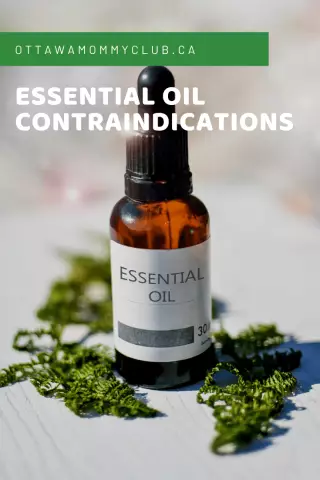- Author Rachel Wainwright wainwright@abchealthonline.com.
- Public 2023-12-15 07:39.
- Last modified 2025-11-02 20:14.
Mustard oil

Mustard has been known in almost all countries of the world since ancient times, not only for its excellent taste, but also for its healing effect. In ancient India she was called "exorcising leprosy" and "warming". A lot of information about it can be found in the writings of the great healers of Ancient Greece and the Roman Empire.
Mustard oil is obtained from mustard seeds, which is used in canning, confectionery and bakery industries, as well as in medicine, cosmetology and for technical purposes. The beneficial properties of mustard oil are complemented by the fact that it is resistant to oxidative processes and does not go rancid during long-term storage.
Mustard oil appeared in Russia in 1810. In those days, the kitchen of the imperial house of the Romanovs prepared all dishes only with its use.
Composition
According to reviews, mustard oil has numerous healing properties, which are explained by the richness of its chemical composition. It includes:
- Essential oils (alligoric and crotonyl mustard);
- Saturated and polyunsaturated fatty acids (linoleic, palmitic, dioxystearic, linolenic, behenic, lignoceric, peanut, oleic, erucic);
- Dimethyl sulfide;
- Enzyme - myrosin;
- Carbon disulfide;
- Glycoside - Sinigrin;
- Fat-soluble vitamins;
- Vitamin C;
- Calcium;
- Iron.
The calorie content of 100.0 g of mustard oil is 898 kcal. It contains 0% protein, 0% carbohydrates and 99.8% fat.
Useful properties of mustard oil
This vegetable oil is rich in healthy omega-3 fatty acids that improve the elasticity of blood vessels, reduce blood viscosity and have anti-atherosclerotic properties. Therefore, it is recommended to take it for people suffering from diseases of the cardiovascular system.
As mentioned above, mustard oil is rich in fat-soluble vitamins (E, K, D, A). Vitamin E has a pronounced antioxidant effect, due to which it slows down the aging process of the human body, protects it from the development of diseases of the heart, joints, and the occurrence of malignant neoplasms. Vitamin A is essential for color perception, with a lack of it develops a disease called "night blindness" (a sharp decrease in vision at dusk). Vitamin K regulates blood clotting processes, and vitamin D is needed for the normal course of calcium-phosphorus metabolism and bone health.
The beneficial properties of mustard oil also lie in its unique immunomodulatory ability. In addition, it has a decongestant, analgesic, bactericidal, antiviral and wound healing effect.
This food product has a mild stimulating effect on the digestive process. According to reviews, mustard oil also has anthelmintic activity and can be taken orally as an anthelmintic.
Nutritionists recommend including this oil in the diet of the elderly, children, pregnant women and nursing mothers.
For the treatment of myositis, the consequences of injuries, diseases of the joints, mustard oil can be applied externally in the form of rubbing or oil compresses.

According to reviews, mustard oil is quite effective in treating acne, boils, herpes, lichen, atopic dermatitis, psoriasis and seborrhea.
One of the beneficial properties of mustard oil is its ability to improve blood circulation. Therefore, it is often used during massage in order to increase its effectiveness. Mustard oil is indispensable for strengthening hair.
Mustard oil: contraindications
Like any food product, mustard seed oil can have not only beneficial but also harmful properties on the human body. This product is not shown to everyone. Therefore, before you start taking it for food, you should also find out about the contraindications to mustard oil. In people suffering from diseases of the gastrointestinal tract, especially during an exacerbation, the harm of mustard oil may appear, which worsens the course of the disease.
The high content of biologically active substances determines not only the benefits, but also the harm of mustard oil, because many of them are allergenic and can lead to allergic reactions. It should be remembered that allergies can occur both when taking mustard oil inside and when using it externally.
Found a mistake in the text? Select it and press Ctrl + Enter.






